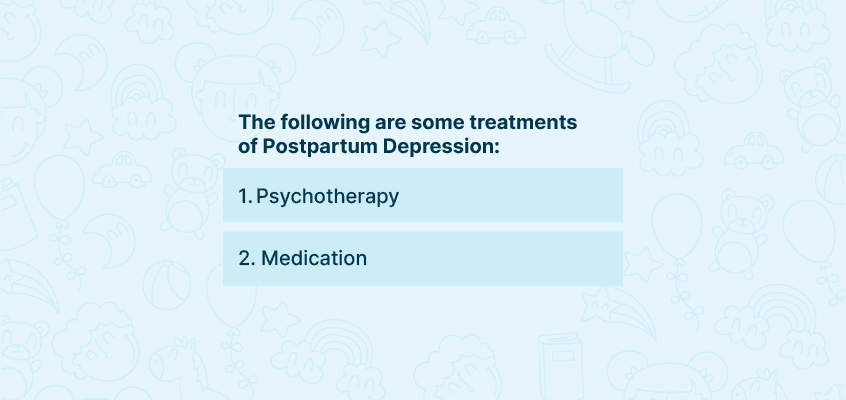Introduction
Childbirth is a significant event in a woman’s life, causing her to experience a flood of intense emotions and physical changes. The sudden emptiness can rob the mother of joyful feelings. Many physical and emotional causes may result in Postpartum Depression affecting a mother’s quality of life. Prompt diagnosis and proper treatment can improve the outlook of most mothers and restore a motherly bond with the newborn.
Our Wellness Programs
What is Postpartum Depression?
It is natural for a new mom to feel sudden relief or happiness immediately after childbirth. Childbirth can also result in exactly opposite feelings. It may occur as one of the childbirth complications, causing anxiety, sleep disturbances, mood swings, and periodic spells of crying. Some women may experience a complex assortment of emotional, behavioural, and physical symptoms after giving birth. The complex condition is Postpartum Depression. Postpartum depression is a short-term condition as the mother can return to her usual self after prompt medical support.

Looking for services related to this subject? Get in touch with these experts today!!
Experts

Banani Das Dhar

India
Wellness Expert
Experience: 7 years

Devika Gupta

India
Wellness Expert
Experience: 4 years

Trupti Rakesh valotia

India
Wellness Expert
Experience: 3 years

Sarvjeet Kumar Yadav

India
Wellness Expert
Experience: 15 years
What are the symptoms of postpartum depression?
The signs and symptoms of postpartum depression can vary intensity depending upon the individual. A mother experiencing Postpartum Depression may not present with all signs and symptoms mentioned below. These symptoms impact the mother’s well-being and cause problems for the baby. Mothers who experience Postpartum Depression may share some or most of the following symptoms:
- Lacking engagement with the newborn
- Feeling of incompleteness
- Feeling of worthlessness
- Low energy and drive
- Sleep disturbances that may cause oversleeping or lack of sleep
- Frustration
- Loss of interest in simple pleasures of life
- Thoughts to hurt self or newborn
- Lack of focus
- Confusion
- Loss of decision-making ability
- Hopelessness
- Lacks the confidence to be a good mother
- Detachment from family and friends
- Sudden increase or loss of appetite
Symptoms of Postpartum depression may become evident in a couple of days after the delivery or can appear anytime within a few weeks or even months.
What causes postpartum depression?
Several complex processes occur during childbirth, like physical, chemical, and hormonal changes. Estrogen and progesterone are the two main reproductive hormones in women which fluctuate significantly during pregnancy. The rise can be as high as ten times the normal levels. The levels drop suddenly after childbirth and revert to pre-pregnancy levels within two or three days after the delivery.
All this may trigger a combination of events known as Postpartum Depression. Postpartum depression occurs because of an individual’s reaction to the social, hormonal, and physiological changes occurring after childbirth. It may be the result of the following risk factors:
- A newborn with special needs
- The feeling of being unsightly
- Inability to breastfeed the baby
- Preterm baby
- Stillbirth
- Baby with a low birth weight
- Underage pregnancy
- Addiction to drugs or alcohol
- History of a traumatic event
- Lack of a support system
- The stress of raising or looking after the baby
What is the Treatment of causes of postpartum depression?
There is no standard treatment of Postpartum Depression as physicians need to consider types and the severity of symptoms. Seeking emotional support or joining support groups may help treat Postpartum Depression.
The following are some treatments of Postpartum Depression:
- Psychotherapy– Talking about issues and fears, a professional psychotherapist can help. Most mothers can cope with postpartum depression by learning to deal with the situation. Psychotherapists offer guidance on responding to feelings and emotions positively. They also provide consultation to set practical goals.
- Medication– Physicians may recommend antidepressant medicines to elevate the mood and deal with the symptoms. These can also restore the hormonal balance in patients suffering from postpartum depression. Antipsychotic drugs are helpful to treat psychosis, which can be the fallout of postpartum depression.
Postpartum depression treatment helps resolve symptoms. It also improves the quality of the life of the mother. Stopping the treatment can result in a relapse of the condition.
Postpartum depression can affect your well-being and the baby’s development. Visit https://www.unitedwecare.com/services/online-therapy-and-counseling/depression-counseling-and-therapy/ for appropriate advice.
How long can postpartum depression last?
It is common to experience baby blues after the delivery, which is a recovery process following the pregnancy. Most mothers recover from emotional issues like anxiety, stress, and sadness within a couple of weeks after childbirth.
There is no standard duration of postpartum depression as it can last anywhere between a few days and several months. There are some cases of postpartum depression that lasted over six months. The physician may diagnose the condition as Postpartum Depression if the symptoms of depression and lack of attachment with the baby persist beyond two weeks after the delivery of a child.
There are several studies to determine the duration of postpartum depression in mothers. In one such study, the researchers observed several ladies struggle with postpartum depression years after the delivery. The data underlines the significance of seeking a psychologist’s assistance to fight the condition as early as possible.
When does Postpartum Depression start?
Usually, the onset of Postpartum Depression is during the first three weeks after the delivery date. Postpartum depression can also set in as soon as the baby is delivered. Some mothers-to-be may start experiencing milder symptoms just before childbirth.
Many moms may experience Postpartum Depression one year after the delivery. The condition may be a carry-over effect of some episodes that began during or before the pregnancy. In short, there is no standard timeline. Prompt treatment can ensure a positive outcome.
Some mothers may not know they have postpartum depression if the symptoms are mild. Some of the symptoms can be associated with baby blues. The physician may consider treating postpartum depression if the symptoms of sadness, lack of attachment to the baby, and loss of interest continue for more than two to three weeks.
Conclusion
Incidence of Postpartum Depression is common. One in eight new mothers may experience the symptoms of the condition. It can result from several factors, including sudden fluctuations in female reproductive hormones. The onset of postpartum depression can be anytime during the first year after childbirth. Postpartum depression is a treatable condition.
On a positive note, there are several safe and effective options for the successful treatment of postpartum depression following an early diagnosis. It is necessary to speak about the symptoms and explore treatment as a lack of proper treatment can affect the relationship with the baby. Postpartum depression can also delay important milestones. Speak to a trained medical practitioner today.
















